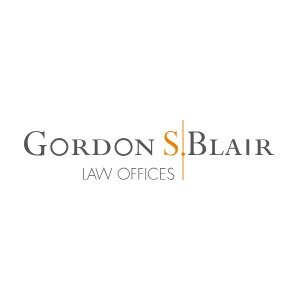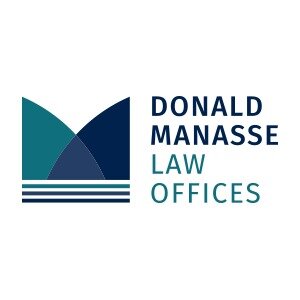Best Landlord & Tenant Lawyers in Monaco
Share your needs with us, get contacted by law firms.
Free. Takes 2 min.
Free Guide to Hiring a Real Estate Lawyer
Or refine your search by selecting a city:
List of the best lawyers in Monaco
About Landlord & Tenant Law in Monaco
Landlord and tenant law in Monaco is contained within the broader framework of property law, governed by the Principality's Civil Code and specific statutes designed to regulate rental agreements. The legal system in Monaco provides a balanced approach to protecting the rights and responsibilities of both landlords and tenants, ensuring fair play in all rental agreements. Due to Monaco's unique status as a Mediterranean enclave with a rich history of real estate investments, understanding the specifics of these laws is crucial for anyone involved in property transactions or disputes.
Why You May Need a Lawyer
There are several situations where individuals may require legal assistance concerning landlord and tenant issues in Monaco:
- Lease Agreements: Drafting, reviewing, or negotiating the terms of leases can be complex and may benefit from legal oversight.
- Dispute Resolution: When conflicts arise over rent payments, property damage, or lease violations, a lawyer can provide mediation or litigation support.
- Eviction Proceedings: Navigating eviction laws in a way that complies with the legal statutes is critical for both parties involved.
- Understanding Rights and Obligations: For both new landlords and tenants, understanding their respective rights and obligations can prevent future disputes and ensure compliance with local laws.
- Property Management Advice: Legal expertise can help landlords in planning long-term property management strategies.
Local Laws Overview
The key aspects of landlord and tenant laws in Monaco encompass several critical areas:
- Lease Agreements: All residential rentals must be formalized in a written agreement to be legally binding. The terms should include rent, duration, and obligations.
- Rent Control: While Monaco does not have strict rent control laws, the market is heavily influenced by availability and demand, necessitating clear terms in rental agreements.
- Security Deposits: These are typically required and must be returned to the tenant at the end of the lease, provided no outstanding issues remain.
- Terminations & Evictions: These must be conducted in accordance with local legal guidelines, often requiring judicial involvement to ensure fairness.
- Tenant Rights: Tenants are entitled to a safe living environment, timely repairs, and certain privacy rights while occupying rented properties.
Frequently Asked Questions
What is the legal duration for a residential lease in Monaco?
Residential leases in Monaco typically last for one year but can be agreed upon for longer or shorter periods, subject to mutual consent.
Can a landlord increase the rent unilaterally during the tenancy?
No, landlords must comply with the terms set out in the lease agreement regarding rent increases and cannot adjust the rent unless stipulated terms allow it.
Are there tenant protections against eviction during a dispute?
Tenants have legal protections, and eviction can only be carried out through a legal process, giving tenants a chance to contest the action in court.
How are disputes between landlords and tenants typically resolved?
Disputes are often resolved through negotiation, mediation, or in the courts if necessary, with legal representation beneficial for both parties.
Is a written lease required by law in Monaco?
Yes, written leases are required for residential properties to be considered legally binding.
How is property maintenance responsibility divided in Monaco?
Generally, landlords are responsible for structural repairs, while tenants must handle routine maintenance and minor repairs as specified in the lease.
What happens to the security deposit at the end of the lease?
The security deposit should be returned to the tenant, minus any deductions for damages or unpaid rent, within a reasonable timeframe.
Can a tenant sublet the rental property?
Subletting is typically allowed only with the landlord’s explicit consent, and this should be clearly stipulated in the lease agreement.
Is the presence of a real estate agent necessary for leasing a property?
While not necessary, using an agent can offer additional protection and ease the leasing process for both landlords and tenants.
What are the common reasons for lease termination by a landlord?
Common reasons include breach of lease terms by the tenant, requirement of the property for personal use, or planned property renovation. Legal processes must be followed.
Additional Resources
Those seeking further assistance may find the following resources helpful:
- Monaco’s Housing Department (Direction de l'Habitat): Provides information and assistance regarding residential leases.
- Bar Association of Monaco: Can provide referrals to qualified attorneys specializing in landlord and tenant law.
- Monaco's Legal Aid (Aide Juridique): Offers legal assistance for those who qualify based on their financial situation.
Next Steps
If you require legal assistance in landlord and tenant matters in Monaco, consider the following steps:
- Consult with a Lawyer: Engage a legal professional specializing in real estate law to understand your rights and obligations.
- Gather Documentation: Organize all relevant documents, including lease agreements, correspondence, and receipts, to aid your lawyer in providing informed advice.
- Consider Mediation: Explore mediation as a cost-effective, less-adversarial means to resolve disputes.
- File a Complaint: If necessary, your lawyer can help you file a formal complaint with the appropriate legal body.
Lawzana helps you find the best lawyers and law firms in Monaco through a curated and pre-screened list of qualified legal professionals. Our platform offers rankings and detailed profiles of attorneys and law firms, allowing you to compare based on practice areas, including Landlord & Tenant, experience, and client feedback.
Each profile includes a description of the firm's areas of practice, client reviews, team members and partners, year of establishment, spoken languages, office locations, contact information, social media presence, and any published articles or resources. Most firms on our platform speak English and are experienced in both local and international legal matters.
Get a quote from top-rated law firms in Monaco — quickly, securely, and without unnecessary hassle.
Disclaimer:
The information provided on this page is for general informational purposes only and does not constitute legal advice. While we strive to ensure the accuracy and relevance of the content, legal information may change over time, and interpretations of the law can vary. You should always consult with a qualified legal professional for advice specific to your situation.
We disclaim all liability for actions taken or not taken based on the content of this page. If you believe any information is incorrect or outdated, please contact us, and we will review and update it where appropriate.
Browse landlord & tenant law firms by city in Monaco
Refine your search by selecting a city.














